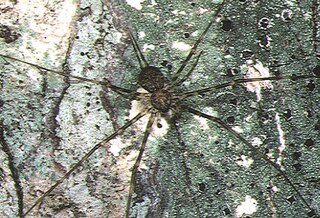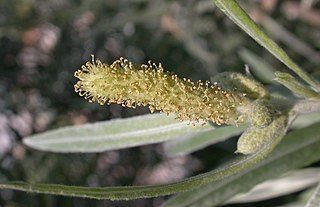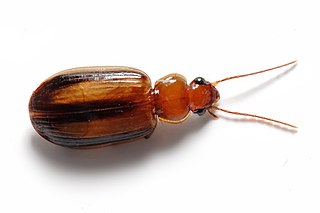
Ant spiders are members of the family Zodariidae. They are small to medium-sized eight-eyed spiders found in all tropical and subtropical regions of South America, Africa, Madagascar, Australia-New Guinea, New Zealand, Arabia and the Indian subcontinent. Most species are daytime hunters and live together with ants, mimicking their behavior and sometimes even their chemical traits. Although little is known about most zodariids, members of the genus Zodarion apparently feed only on ants; a number of other genera in the family are apparently also ant specialists.

Millard Robert E. Theodore Baehr is an American media critic and chairman of the Christian Film and Television Commission, a division of Good News Communications, Inc. He is publisher and editor-in-chief of Movieguide, a website and biweekly journal that evaluates motion pictures and other entertainment products from a Christian perspective on suitability for family consumption. He also hosts nationally and internationally syndicated Movieguide radio and television programs.

Hersiliidae is a tropical and subtropical family of spiders first described by Tamerlan Thorell in 1869, which are commonly known as tree trunk spiders. They have two prominent spinnerets that are almost as long as their abdomen, earning them another nickname, the "two-tailed spiders". They range in size from 10 to 18 mm long. Rather than using a web that captures prey directly, they lay a light coating of threads over an area of tree bark and wait for an insect to stray onto the patch. When this happens, they encircle their spinnerets around their prey while casting silk on it. When the insect is immobilized, they can bite it through the shroud.

Cymothoa exigua, or the tongue-eating louse, is a parasitic isopod of the family Cymothoidae. It enters fish through the gills. The female attaches to the tongue, while the male attaches to the gill arches beneath and behind the female. Females are 8–29 mm (0.3–1.1 in) long and 4–14 mm (0.16–0.55 in) wide. Males are about 7.5–15 mm (0.3–0.6 in) long and 3–7 mm (0.12–0.28 in) wide. The parasite severs the blood vessels in the fish's tongue, causing the tongue to fall off. It then attaches itself to the remaining stub of tongue and the parasite itself effectively serves as the fish's new "tongue".

Hersilia, also known as long-spinnereted bark spiders and two-tailed spiders, is a genus of tree trunk spiders that was first described by Jean Victoire Audouin in 1826. Their nicknames are a reference to their greatly enlarged spinnerets.

Salix exigua is a species of willow native to most of North America except for the southeast and far north, occurring from Alaska east to New Brunswick, and south to northern Mexico. It is considered a threatened species in Massachusetts while in Connecticut, Maryland, and New Hampshire it is considered endangered.

Amblytelus is a genus of ground beetle including 44 species distributed through southern Australia, including the Southwest and along the east coast up to North Queensland.

Baehr v. Miike was a lawsuit in which three same-sex couples argued that Hawaii's prohibition of same-sex marriage violated the state constitution. Initiated in 1990, as the case moved through the state courts, the passage of an amendment to the state constitution in 1998 led to the dismissal of the case in 1999. The Full Faith and Credit Clause of the Constitution would have provided that all states would be potentially required to recognize marriages obtained in Hawaii, prompting the passage of the federal Defense of Marriage Act (DOMA) in 1996 under Bill Clinton. Dozens of statutes and constitutional amendments banning same-sex unions at the state level also followed Baehr.

Lebia is a genus of predatory ground beetles. Common names include colorful foliage ground beetles and flat ground beetles. They are found worldwide and there over 700 species in 17 subgenera.

Dolichoctis is a genus in the beetle family Carabidae. There are more than 130 described species in Dolichoctis.

Perigona is a genus in the beetle family Carabidae. There are more than 170 described species in Perigona.

Platyninae is a subfamily of ground beetles.

Notagonum is a genus in the beetle family Carabidae. There are more than 80 described species in Notagonum.

Psydrinae is a subfamily of beetles in the family Carabidae.
Dystrichothorax is a genus in the beetle family Carabidae. There are more than 50 described species in Dystrichothorax, found in Australia.
Dolichoctis aculeoides is a ground beetle species first described by Baehr in 1999.
Dolichoctis biak is a ground beetle species first described by Baehr in 1999.

Lebiini is a tribe of ground beetles in the family Carabidae. There are more than 250 genera and 4,800 described species in Lebiini.














